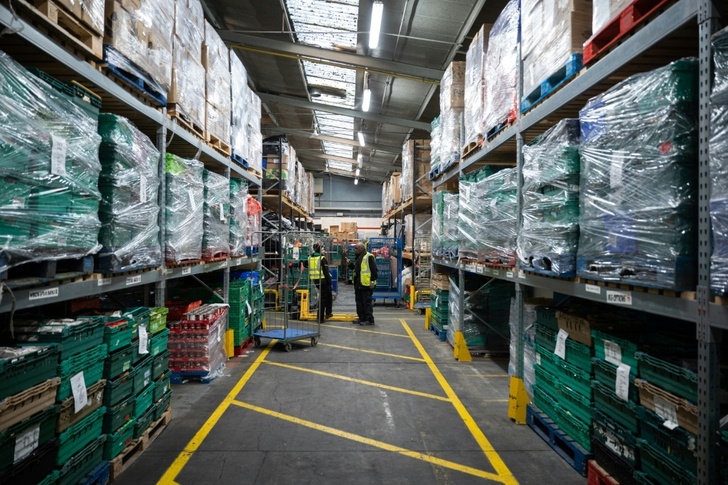At an east London church on a bitterly cold winter's day, Beautine Wester-Okiya picks her way through boxes of donated baby clothes, toys and other assorted items destined for local people battered by the UK's cost-of-living crisis.
It's the frontline of something the special needs nurse could never have imagined before -- dire poverty in a developed Western nation.
"I've never seen anything like this in my life here in the UK," Wester-Okiya, who came to Britain 40 years ago from Malaysia, told AFP.
It's a similar story of economic hardship 140 kilometres north (85 miles) north in the central English city of Coventry.
In a huge warehouse, employees of the charity Feed the Hungry pack emergency food supplies not just for children in Nicaragua, Ukraine and Africa but also families just a few miles down the road.

The crisis has put food banks that have already become a feature of modern British life under even greater pressure, prompting a drive to branch out into offering other services from baby clothes to help applying for welfare payments.
- 'Suicidal mums' -
"We have suicidal mums... we have kids who just managed to come through the pandemic only to find this terrible cost-of-living crisis," said Wester-Okiya.

For the past two-and-a-half years the Hackney Children & Baby Bank has been flat out coordinating help for the needy.
Set up during the pandemic, it has repeatedly swung into action to deal with crisis after crisis, from migrants who have arrived in small boats with nothing to homeless Afghans and Ukrainians.
But many of those in need of help now are people from the UK who've never before faced such economic pain.
"We're no longer talking of just migrants, we are talking of middle-class people having to sell their house, people like teachers," said Wester-Okiya.
Faced with a constantly growing crisis -- the UK now has more than 2,500 food banks -- the baby bank has expanded its operations to include older children too.

"One teen, 14 years old, wrote a terrible poem about how she's bullied because she's not able to wash," said Wester-Okiya, adding how the girl described her mother cutting a bar of soap into four and giving each family member a small piece.
- Next meal -
In Coventry, a city once home to a thriving car manufacturing industry, the "crazy" cost of everything has led single mother-of-four Hannah Simpson to visit a food bank for the first time.

But that has inevitably taken its toll, leaving her feeling "tired and drained".
"I try and hide my struggles from them... but my daughter did say to school the other day, 'I'm worried because mummy hasn't been eating dinner with us and there's not enough food to go round'," she said.
"It's a lot of stress. I've got four children, I've got to manage, keep on top of and I've got to worry where I'm going to get our next meal from."
A 50-year-old woman who gave her name as Tracy said the food bank has been a "lifesaver" since she began coming in November.
"My cupboards were completely bare, I've been having one meal a day, just waiting until my tea every day," she said.
Faced with a crisis that is only getting worse, Feed the Hungry, which runs Coventry's 14 food banks as well as its international operation, has launched a range of projects aimed at helping people to cope long term.
A project to teach people to cook and make the best of what they have available is under development.
- 'Sold everything' -
A "Pathfinder" project offers people the chance to buy food worth £25 ($30) for a small fee, giving them back some choice and "dignity" while at the same time offering them help to access grants and unclaimed welfare payments.

People who come through the charity's doors have "no financial resilience whatsoever, they've borrowed and they've sold everything they've got", he added.
"You can go right round the country and it's exactly the same in every city and every town."
For Wester-Okiya, hopes of building resilience are a long way off.
"My phone never stops," she said, waving a smartphone buzzing constantly with messages and pleas for help.
"I've lived here for 40 years and as a nurse I interact a lot with families but last year was terrible and I fear for the next three months."
har/phz/lth
© Agence France-Presse
Your content is great. However, if any of the content contained herein violates any rights of yours, including those of copyright, please contact us immediately by e-mail at media[@]kissrpr.com.
Source: Story.KISSPR.com

